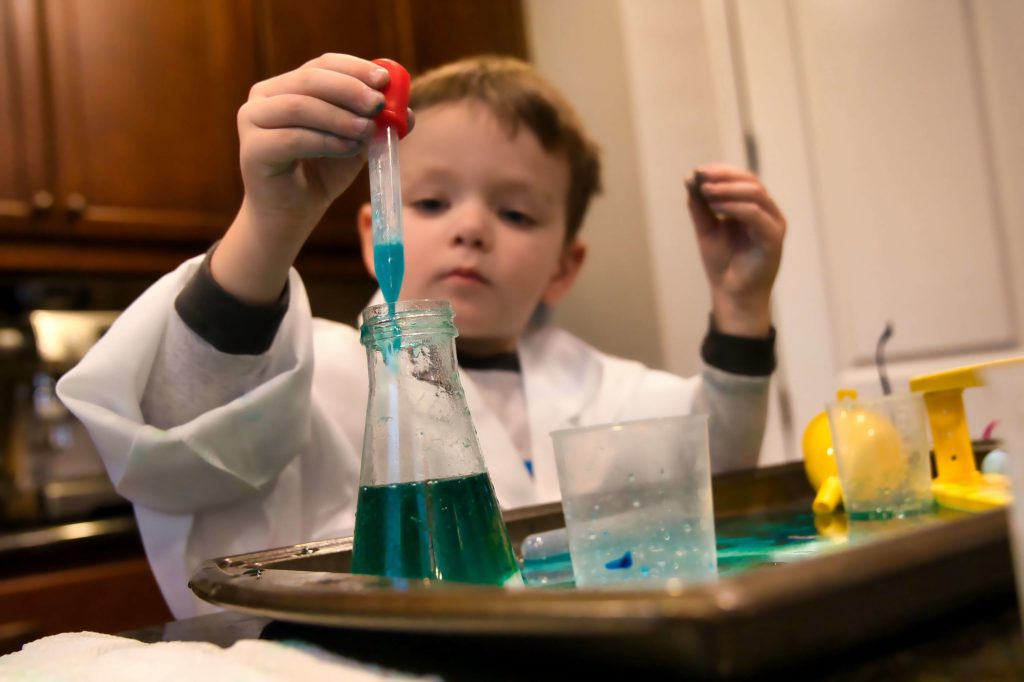
Because of the hands-on nature of a Montessori kindergarten, science activities of all sorts are easy to incorporate into the lesson plan. The trick is to give the children ample opportunity to get involved directly with the activities. To give you an idea of the activities available, these classroom favorites are at the top of the list.
Glitter Germs
This activity uses glitter to show how germs stick to the skin and can be easily transferred from one kindergartner or object to another. It also shows them that using soap and water is an effective way to remove germs. All you need for this activity is some glitter, hand soap, and water. You can take this a step further by using different colored glitter for different children and showing how the colors mix as the experiment progresses.
Mystery Bags
For this activity, you will need some paper bags and some stuff. Put an item in each bag and let children try to figure out what the item is using their sense of touch, or smell if you have objects with a scent. Nature, food, and toys are 3 examples of the types of items you could use, but once the game gets started let the children pick a few ideas to share with the other children as well.
Water Works
Water is an excellent subject for science activities. Children can learn how water flows, observe its transition from a solid to liquid to gas, and explore the curious properties of water. Basic experiments require nothing but water and a place to pour it, but more advanced investigations will need supplies, such as a magnet and needle to make a compass or black pepper and soap to show surface tension and how it can be manipulated.
Starting Seeds
Small cups, some potting soil, and a variety of seeds teach valuable lessons about plants and biology that are excellent for kindergartners. The process begins with sprinkling seeds into a soil-filled cup, and each day is a chance to see whether the seeds have sprouted. This experiment takes a few days to get results but the experience can last for months.
Private kindergartens use a hands-on approach to education that is perfect for exploring the sciences because it gives children a relatable experience to frame their lessons around. Children are already curious about science, even before they know what science is.